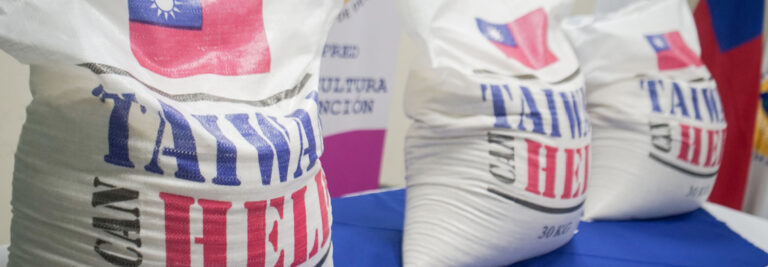A multi-year opinion poll released earlier this month revealed that a record-high number of Taiwan’s 23.8 million citizens self-identify as “Taiwanese,” with 67 percent identifying as “Taiwanese” and only 2.4 percent as “Chinese”—a trend that is unlikely to please Beijing. Conducted annually since 1992, the poll on Taiwanese attitudes by National Chengchi University’s Election Study Center recorded an 8.5 percentage point increase in those who identify as “Taiwanese” (from 58.5 percent in June 2019), a 3.3 percentage point decrease in those who identify as “Chinese” (5.7 in June 2019), and a 7.2 percent drop in those who identify as “both Taiwanese and Chinese,” or 27.5 percent, from 34.7 percent in June 2019.
The same survey revealed similar trends in support for independence versus unification, with 27.7 percent of respondents saying they supported de jure independence, with a significant increase from 15.1 percent in 2018. Among those individuals, 7.4 percent said they wanted de jure independence “as soon as possible.” Support for maintaining the “status quo” (de facto independence) for now and deciding later stood at 28.7 percent, while 23.6 percent said they wanted to maintain the “status quo” in perpetuity. Support for unification with the People’s Republic of China (PRC) as soon as possible now stands at 0.7 percent, the lowest mark recorded since the beginning of the survey.
A separate survey, also conducted by the NCCU Election Study Center on behalf of the Taiwan Foundation for Democracy—which will be released later this year and has been seen by this author—highlights similar trends in terms of support for Taiwan’s democratic system of governance, willingness to defend that system, and positive perceptions of Taiwan’s democratic future (see here for the results of the 2019 survey). Taken together, these polls demonstrate that Taiwanese views on democracy are intrinsically related to views on self-identification and independence versus unification.
Beijing Strikes Out
While changes in these attitudes have mostly been steady and gradual since 1992, all indicators underwent a marked shift starting in 2018. In every case, these trends have been unfavorable to China. These patterns have continued regardless of which party was in office in Taiwan (Chinese Nationalist Party, or Kuomintang) from 1992-2000, and 2008-2016, or Democratic Progressive Party (DPP), from 2000-2008 and 2016 to the present. Moreover, the numbers demonstrate that “goodwill” on the part of the Chinese Communist Party (CCP)—in the form of closer cross-Strait interactions, signed agreements, investment, tourism, and a reduction in Beijing’s saber-rattling toward Taiwan—has failed to translate into a shift in attitudes in Taiwan on self-identification and the independence-versus-unification question (support for maintaining the “status quo” indefinitely or keeping the “status quo” now and deciding later experienced a slight decline during the years of rapprochement under president Ma Ying-jeou [馬英九]).
Following the inauguration of Tsai Ing-wen (蔡英文) on May 20, 2016, Beijing almost immediately resumed its strategy of coercion against Taiwan with various “punitive” measures, including the resumption of efforts to steal Taiwan’s official diplomatic allies and weaponize tourism to hurt Taiwan’s economy. It also exploited its greater influence in Taiwan, accumulated during the Ma years, to attempt to “balkanize” Taiwan and undermine the Tsai administration, which refused to give in to Beijing’s precondition of embracing the so-called “1992 Consensus” and the associated “One-China Principle.” In the months leading up to the January 2020 general elections in Taiwan, Beijing intensified its military activity in the vicinity of Taiwan, including repeated intrusions into its Air Defense Identification Zone (ADIZ) and the occasional deliberate crossing into the Taiwan side of the median line in the Taiwan Strait starting in April 2019 (though markedly reduced, during the Ma years Beijing never completely halted its military buildup and activity threatening Taiwan). While political warfare and coercion have played a much greater role in Beijing’s strategy toward Taiwan since 2016, the Chinese regime has nevertheless retained some elements of its earlier strategy of economic incentives. This strategy came in the forms of “31 measures” (31條措施) and a follow-on “26 measures,” a package of “unprecedented benefits” which was meant to attract young talent from Taiwan, with the hopes that such inducements would translate into political gain for the CCP.
By 2020, with the re-election of Tsai with a record number of votes, it had become evident that both of Beijing’s approaches to Taiwan—inducement and coercion—had failed to deliver the expected results for the CCP. Rather than weaken the appeal of Taiwan’s democracy and erode its support, China’s sustained “sharp power” activities toward Taiwan have resulted in a stronger embrace of democratic governance and willingness to defend it. As for its incentive program, the South China Morning Post reported in April 2019 that Taiwan’s “younger generation are heading across the Strait in search of work—not in support of politics.”
While the sharp turn towards a more Taiwan-centric identification and support for independence and democracy is largely a result of direct Chinese policy failures, it may also be attributed to CCP Secretary General Xi Jinping’s (習近平) crackdown in Xinjiang and Tibet, assault on Chinese civil society and religion, and intransigence in Hong Kong. The NCCU poll was conducted before the implementation of the draconian National Security Law [維護國家安全法] in the Special Administrative Region), which has not gone unnoticed in Taiwan, which has developed a much more skeptical view of its neighbor. Cumulatively, Beijing’s behavior under Xi has been self-defeating to an extent unseen since the Taiwan Strait Missile Crisis of 1995-1996.
Impact in Taiwan
Greater support for de facto or de jure independence among the Taiwanese population, combined with deepening self-identification as “Taiwanese” and embrace of democracy, has already had an impact on the domestic political scene.
Unable to regain its footing following the Ma administration and its failed bid for the presidency in 2016, the KMT has struggled to come up with a cross-Strait policy that appeals to the general public. In both 2016 and 2020, it fielded presidential candidates, Hung Hsiu-chu (洪秀柱)—before she was replaced by the less ideological Eric Chu (朱立倫)—and Han Kuo-yu (韓國瑜), whose cross-Strait policies very likely undermined their chances at the ballot. Cognizant of shifting attitudes in Taiwan, the KMT has been compelled to . This process resulted in interim KMT Chairman Johnny Chiang (江啟臣)—who was thrusted into the positon as chairman through a special by-election after his predecessor stepped down—briefly flirting with the idea of treating the “1992 Consensus” as more of a “historical description” than a viable instrument for cross-Strait policy, though he quickly faced backlash from within his own party. It if is to reform and become a viable opposition party again, the KMT will have little alternative but to adjust its rhetoric and policies on cross-Strait relations—a daunting challenge for any party head, who will have to contend with influential members of the older generation.
For the DPP, current trends appear to legitimize its approach to relations with China since 2016. Nevertheless, President Tsai and her prospective successor in 2024 will need to strike a difficult balance between appealing to public sentiment and the need to ensure that Taipei does not move in a direction that creates instability in the Taiwan Strait by provoking Beijing. In the long term, such a careful policy stance in Taipei could result in growing dissatisfaction among a public that demands more assertiveness from the government.
For smaller political parties, the trends in public sentiment have served to marginalize—if not render altogether irrelevant—those that advocate for unification, such as the China Unification Promotion Party, the New Party, and the Taiwan Red Party, while emboldening nativist parties and organizations (e.g., the Radical Party) to be more vocal in their calls for de jure independence.
Impact on Cross-Strait Relations
The twin failures of Beijing’s incentive and coercion policies have embittered decisionmakers in Beijing, for whom it has become increasingly difficult to contend that opposition to the “historical inevitability” of unification is only kept alive by radical elements within the DPP and foreign interference. Frustration with the KMT’s perceived foot-dragging on unification has resulted in Beijing losing faith in its supposed partner across the Taiwan Strait. Meanwhile, influential voices within the Chinese military establishment have begun to acknowledge, however begrudgingly, that “peaceful unification”—the end result of a successful policy of incentives and coercion—is becoming increasingly unlikely, and that only force could resolve the matter once and for all.
As his approach to Hong Kong has made clear, Xi is never one to admit defeat or take the people’s democratic aspirations into account. Everything else having failed, Xi may therefore feel compelled to put a premium on a military strategy in the Taiwan Strait. Ultimately, his readiness to act on those impulses will be contingent on several factors, chief among them the domestic situation in China (e.g., instability, threats to the survival of the CCP), the state and credibility of Taiwan’s deterrent capabilities, and the geopolitical context. Taiwanese identification, patriotism, and support for democracy have all survived various attempts by Beijing to thwart, manipulate, and reverse them, and there are few indications that the CCP will liberalize its rule in China or make a more “appealing” offer to Taiwan (and even there it is doubtful that the Taiwanese would embrace a different framework, especially in the wake of the demise of “one country, two systems” in Hong Kong). Clearly, two arrows—Chinese ultranationalism and an unstoppable Taiwanese thirst for self-determination—are hurtling toward each other. And the clock is ticking.
The main point: The two pillars of Beijing’s strategy toward Taiwan, coercion and incentivization, have failed to arrest ongoing trends in Taiwan supporting independence and a democratic form of governance. Everything else having failed, the Chinese leadership could become more inclined to use force against the object of its desire.



